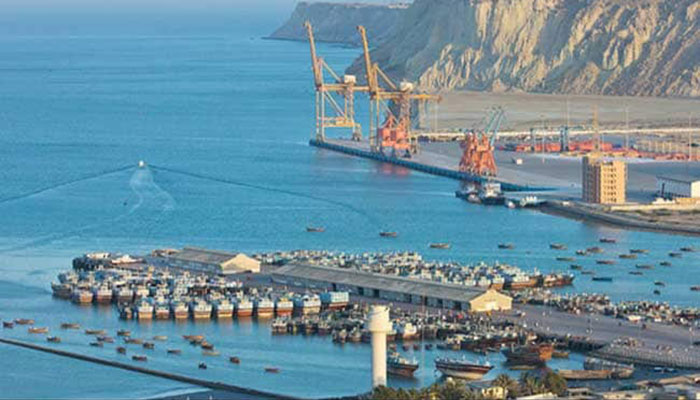Has CPEC been shelved?
September 19, 2019

KARACHI: The $50 billion worth China-Pakistan Economic Corridor (CPEC) projects launched amidst lot of fanfare by the Pakistan Muslim League-Nawaz (PML-N) government and they soon became so expedient that practically all political parties lined to take its credit.
Some analysts laid credit of the CPEC projects with the former president General (retd) Pervez Musharraf and the military leadership. It became so sacrosanct afterwards that mere objecting to the project would invite the label of treachery against the country. But then the pendulum swung the other way. After the inauguration of the Pakistan Tehreek-e-Insaaf's (PTI) government into the office, the projects first came under scathing criticism of Minister for Trade Razzaq Daud and then Minister for Communication Murad Saeed who accused PML-N’s Ahsan Iqbal of involvement in misappropriations in some CPEC projects and then all of them came to a seemingly grinding halt.
Now it has become a foregone conclusion that the CPEC projects have been shelved for all practical purposes. The former spokesman of Balochistan government’s Jan Muhammad Buledi told Deutsche Welle (DW) the incumbent government does not accord any priority to CPEC. Buledi said no progress was witnessed on the CPEC projects for Balochistan in the last one year adding the projects have seemingly been frozen. No development has been undertaken on the land acquired for Gwadar Airport, he said and added same goes with the 300MW electricity generation plant in Gwadar that was to be built by China for which land was also acquired but the development work is yet to start. Gwadar Port remains similarly frozen.
Various circles feel the Chinese leadership is upset with the corruption allegations of the incumbent government. One of the government officials on condition of anonymity told DW, the Chinese have practically stopped funding for the project, especially after Ministers Razak Dawood and Murad Saeed levelled charges of corruption. He said previously the Chinese used to release loans first and later would ask for procurements, but now they first demand procurement and there is no certainty if any funding would be released for it. And how could the government undertake procurement when they do not have funds. This shows that the CPEC projects are practically over and if at all there is any forward movement worth the name it will be extremely slow.
Some politicians believe that while the allegations of corruption did frustrate the Chinese but some of them believe that certain external powers want the CPEC projects to be slowed or altogether scrapped. Pakistan Peoples Party’s (PPP) leader and Deputy Chairman Senate Saleem Mandviwala said when the PPP started these projects they faced immense international pressure against launching them but it did not abandon them. Mandviwala said former president Asif Ali Zardari visited China on 13 occasions and developed trust and confidence with the leadership. He said the incumbent government is trying to keep both US and China happy which is impossible. The incompetence of the PTI government has given China more reason to be dismayed and in this situation, the remaining projects would continue to remain on the back burner.
Many analysts also similarly believe the external pressures are playing a major role in Pakistan backpedalling over the CPEC projects. Suhail Chaudhry, a columnist from Lahore, thinks the CPEC projects would miss deadlines primarily due to stern conditionalities of the Internal Monetary Fund (IMF), World Bank and the US.
America and the other western powers do not want Pakistan to complete the CPEC projects. Pakistan's plight is compounded by the financial crunch and the IMF package. If Islamabad is unable to achieve the revenue targets the IMF would not release its next tranche sending Pakistan to desperately seek the US help for the IMF funding. At this stage, Washington would invoke the CPEC conditions forcing Pakistan with no other option but to slow down the projects, but Pakistan cannot afford to scrap these projects, he said.
A source in the Ministry of Communications confided to DW that several important projects have been put on hold. Development work has stopped on the Karachi-Sukkur motorway. Similarly, the Dera Ismail Khan to Balochistan Wester Route has also been abandoned. Work on several critical motorway projects including the Orange Lines and Green Lines project has also been stopped, causing Pakistan to miss its chance of major development, China in the situation is not overly hurt, he said.
Another prevailing popular perception is that the PTI has sacrificed CPEC at the altar of the US regional policies to cultivate Washington on its side. Senior PTI leader Ishaq Khakwani rejected the perception and cited the example of Malaysia. He said negotiations do take place following the change of governments on the format of payments and other relevant areas but it is unthinkable that the PTI government would drop the CPEC projects altogether.
Originally published in The News











